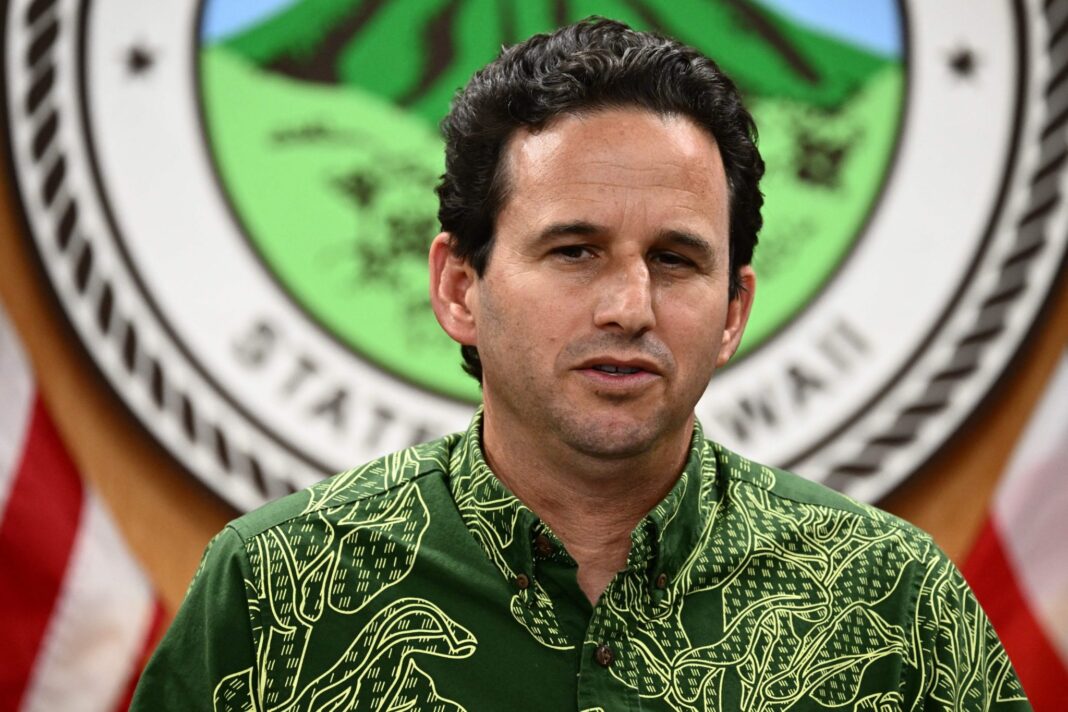Hawaiian officials are asking visitors to come back to the island after its deadly wildfires earlier this month, saying that staying away now does more harm than good to a battered economy.
“Furloughs and layoffs starting because people think the whole island is closed. It is not,” Senator Brian Schatz (D-Hawaii) tweeted on Thursday evening.
“If you want to come to Hawaii [please] consider South Maui,” he continued.
Maui update. South Maui resorts (Lahaina is West Maui) NEED visitors. Furloughs and layoffs starting because people think the whole island is closed. It is not. If you are planning a trip to Wailea or Kihei, don’t cancel. If you want to come to Hawaii pls consider South Maui.
— Brian Schatz (@brianschatz) August 24, 2023
Scahtz’s plea echoed a comment from the state’s governor, Josh Green, earlier this week.
“All of the other areas of Maui…and the rest of Hawaii are safe,” Green said on Monday. The governor appealed to potential visitors, saying that “you will support our local economy and help speed the recovery of the people that are suffering right now.”
West Maui is still off-limits to travel.
The state’s messaging on tourism has been mixed since fires ripped through western Maui earlier this month. On Aug. 9, Green encouraged visitors to immediately end non-essential travel to Maui. Then, a few days later, the mayor of Maui County, Richard Bissen, said the island was “not closed,” and that “many of our residents make their living off of tourism.”
The death toll from the fires currently stands at 115, though over 1,000 are still unaccounted for.
On Thursday, Maui Country blamed Hawaiian Electric for the wildfires, alleging that the power company kept power lines electrified despite warnings of high winds. The company said it was “very disappointed that Maui County chose this litigious path while the investigation is still unfolding” in a statement on Thursday.
Cancel your trip
The wildfires have reinvigorated a debate about “overtourism” in Hawaii from residents frustrated with how tourism stresses local communities and distorts the economy.
“Maui is not the place to have your vacation right now,” wrote actor Jason Momoa, a Hawaiian, on Instagram soon after the fires. “Do not travel,” he warned.
On Aug. 14, the Pokémon Company announced that it would host its next Pokemon World Championships—a competition featuring the franchise’s video games and trading cards—in Honolulu next year.
— Play Pokémon (@playpokemon) August 13, 2023
Users on social media criticized the announcement as insensitive, coming just days after the wildfires, and argued that the decision to host the competition would put too much strain on the state.
Soon after announcing the location of its championship, the Pokémon Company said it was making an “immediate” $200,000 donation to Hawaii relief efforts.
Overtourism
Hawaii attracted 9.2 million visitors in 2022, nearing the 10.4 million visitors recorded in 2019, before the COVID pandemic disrupted travel.
Sixty-seven percent of Hawaiian residents had a favorable view of the tourism industry, according to a July survey from the Hawaii Tourism Authority, far below the 90% approval rating recorded almost a decade ago. About the same proportion agreed with the statement that Hawaii was being “run for tourists at the expense of local people.”
Still, tourism represents about a quarter of the state’s economy. And it’s even more critical to Maui, with tourism responsible for as much as four out of every five dollars spent, estimates the Maui Economic Development Board.
In fact, economists at the University of Hawaii argued in a May forecast that a resilient tourism sector could help protect the state from economic struggles elsewhere in the country.
“It was really the U.S. visitors who have helped us get out of the pandemic,” economist Peter Fuleky told reporters in May, according to Honolulu Civil Beat.
Hawaii is not alone in rethinking its reliance on mass tourism.
Many popular destinations used the break in visitors caused by the COVID pandemic to investigate how to reduce the disruption caused by tourism and, perhaps, attract higher-value visitors.
For example, Bali will start charging foreign visitors a $10 entry fee next February, the island’s head of tourism told Bloomberg. The Indonesian island is also more aggressively deporting tourists and visitors who misbehave.
Subscribe to Well Adjusted, our newsletter full of simple strategies to work smarter and live better, from the Fortune Well team. Sign up today.





